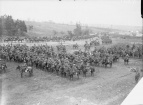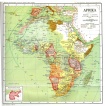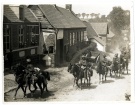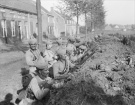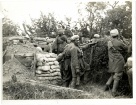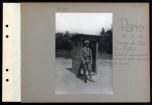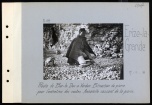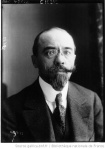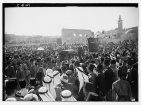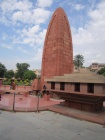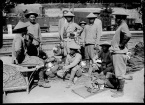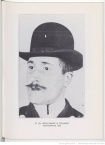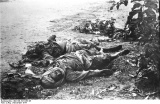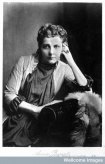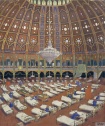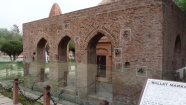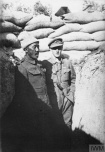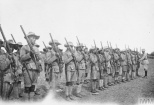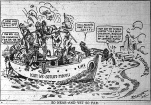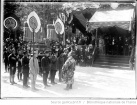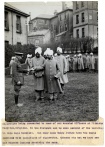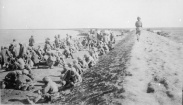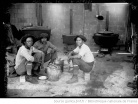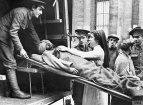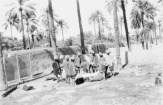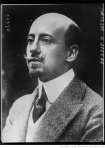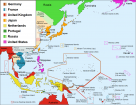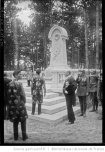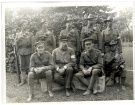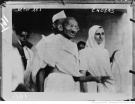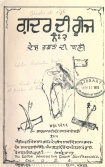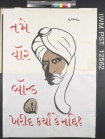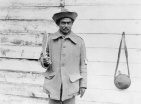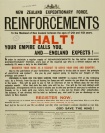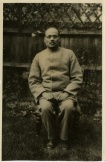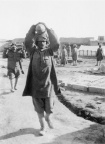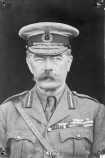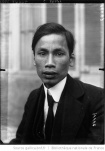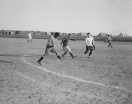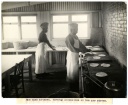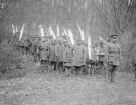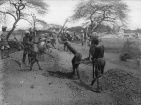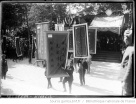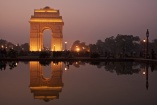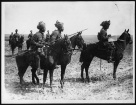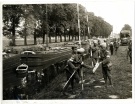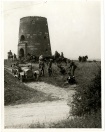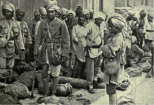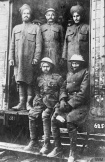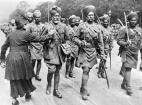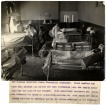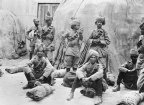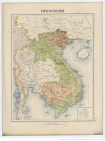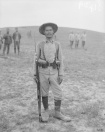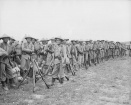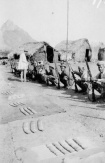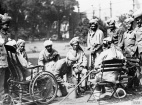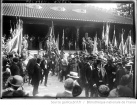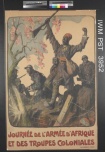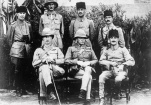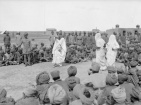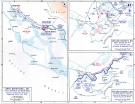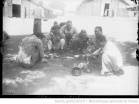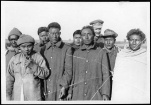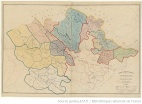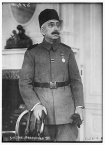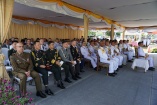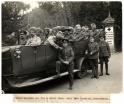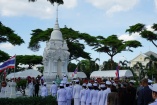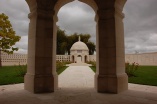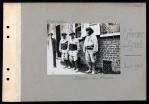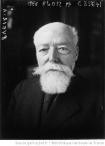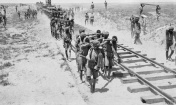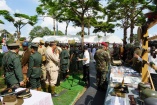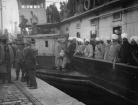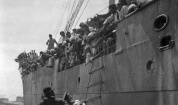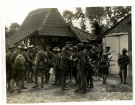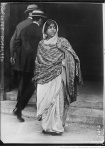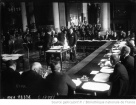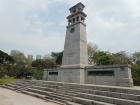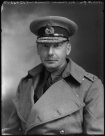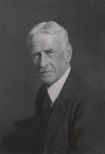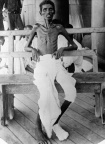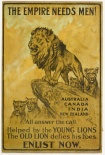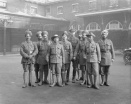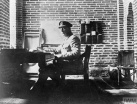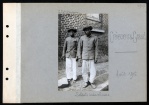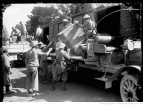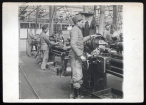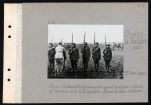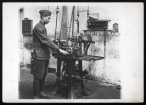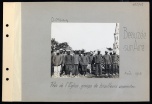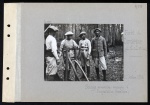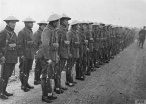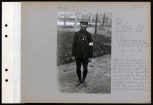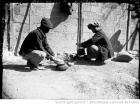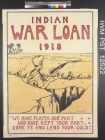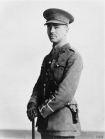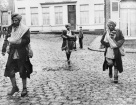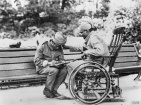Regions South and South East Asia
Survey Articles (Regional)
Regional Thematic Articles
- Between Acceptance and Refusal - Soldiers' Attitudes Towards War (Indochina)
- Centenary (Indian Subcontinent)
- Centenary (Singapore)
- Centenary (Thailand)
- Colonial Society (Indochina)
- Commemoration, Cult of the Fallen (India)
- Commemoration, Cult of the Fallen (Indochina)
- Food and Nutrition (Indochina)
- Health and Medicine (India)
- Historiography 1918-Today (India)
- Indochinese Workers in France (Indochina)
- Labour (India)
- Literature (India)
- Literature (Indochina)
- Making Sense of the War (India)
- Military Planning and Wartime Recruitment (India)
- Post-war Societies (India)
- Press/Journalism (India)
- Press/Journalism (Indochina)
- Prisoners of War (India)
- Religious Missionaries and the Colonial State (Indochina)
- Responses to the War (India)
- Revolutionary Networks (India)
- Sepoy Letters (India)
- Social Conflict and Control, Protest and Repression (Indochina)
- Warfare 1914-1918 (India)
- War Finance (India)
- War Losses (India)
- Women's Mobilization for War (India)
Encyclopedic Entries
- Amritsar, Massacre of
- Berlin Indian Independence Committee
- Besant, Annie
- Chattopadhyaya, Virendranath
- Dayal, Har
- Empire
- Ghadar Conspiracy
- Gurkha
- Hindostan (newspaper)
- Hồ Chí Minh
- Howell, Evelyn Berkeley, Sir
- Indian Expeditionary Force
- Indian Labour Corps
- Khilafat Movement
- Lascar
- Martial Races, Theory of
- Portuguese India
- Portuguese Timor
- Punjab Disturbances 1919
- Sepoy
- Townshend, Charles Vere Ferrers, Sir
- War Poetry
- Wilsonian Moment
See also
- Alliance System 1914
- Bereavement and Mourning
- Colonial Empires after the War/Decolonization
- Commemoration, Cult of the Fallen
- Demobilization
- Destruction of the Ecosystem
- Extra-European Theatres of War
- Health, Disease, Mortality; Demographic Effects
- Influenza Pandemic
- Non-European Soldiers
- Post-war Economies
- Raw Materials
- Rural Society
- Sea Transport and Supply
- The Paris Peace Conference and its Consequences
- Women’s Mobilization for War
Survey Articles (Regional)
-
Burma’s participation in World War I was limited mainly to the provision of troops and engineering units to the Palestine and Mesopotamian Fronts as well as labourers to the Western Front and … READ MORE
Regional -
Indochina contributed significantly to the French war effort in terms of funds, products and human resources. Around 93,000 volunteers, soldiers and workers went to France on the home front and the … READ MORE
Regional -
World War I seemed distant to most Filipinos, who were focused on fighting for independence. The passage of the Jones Law in 1916 made independence a distinct possibility, and led many Filipinos to … READ MORE
Regional -
Siam
By Stefan Hell
Siam (Thailand) declared war on Germany and Austria-Hungary in mid-1917. In 1918 it sent a small expeditionary force to France, the only troops of an independent Southeast Asian country to … READ MORE
Regional
Regional Thematic Articles
-
This paper provides a brief account of the experiences of the Vietnamese who went to Europe as soldiers during World War I. It shows that, contrary to a common belief among many historians that they … READ MORE
Regional Thematic -
Between 2014 and 2018, there were no state-organized events to mark the centenary of the First World War in Singapore. This contrasts with the state-sanctioned commemoration of the Second World War, … READ MORE
Regional Thematic -
On 22 July 1917, King Vajiravudh of Siam declared war on Germany and Austria-Hungary. In the following year, the royal government sent the expeditionary force of 1,284 Siamese volunteers to assist … READ MORE
Regional Thematic -
When World War I broke out, the military conquest of the countries located between China, Siam and the South China Sea had been over for two decades. Nonetheless, French rule in Indochina was not … READ MORE
Regional Thematic -
The betrayal of popular political aspirations by the colonial state, followed by severe repression, resulted in the “Punjab Uprising” and the Jallianwala Bagh massacre of 1919. Unfolding … READ MORE
Regional Thematic -
Memorials designed to commemorate Indochina’s war dead were generally spearheaded by French agencies and commissions. The act of commemoration was laden with a variety of meanings. The question of … READ MORE
Regional Thematic -
The diet of most people in Indochina during World War I was influenced more by climate and crop yields than by the war itself. Due to increased trade within Asia, the French colony did not suffer … READ MORE
Regional Thematic -
Initially, medical arrangements for Indian troops in France and England were poorly organized, but in 1915, Indian war hospitals in England became cornerstones of British imperial war propaganda. The … READ MORE
Regional Thematic -
This article details the historiography of South Asian involvement in the First World War. It traces the process from early examples, such as the battle histories written by J.W.B. Merewether and … READ MORE
Regional Thematic -
About 49,000 Vietnamese workers went to France during World War I. Although their jobs and their working experiences varied, they shared some common experiences which changed their outlook on life … READ MORE
Regional Thematic -
Of the 1.4 million Indians recruited for the First World War, some 563,369 were non-combatants, or “followers”, though their particular kind of war-work is rarely mentioned in the literature. Yet … READ MORE
Regional Thematic -
In spite of the global turn in First World War historiography, the colour of the Great War and modern ''literary'' memory remains predominantly white. This article challenges such Eurocentrism and … READ MORE
Regional Thematic -
Although India was not a theatre of war, World War I produced a major inflexion in a historical trajectory that had been marked since 1815 by a certain degree of insulation from the ebb and flow of … READ MORE
Regional Thematic -
In 1914, the Indian army was a modest colonial force of 159,134 serving Indian troops (officers and men), alongside 2,333 British officers. The Indian army proved to be unprepared for a major war. … READ MORE
Regional Thematic -
The decades between the two world wars seethed with tumultuous and momentous events. A complex pattern of opportunities and crises in the aftermath of the First World War inspired diverse agitations … READ MORE
Regional Thematic -
India hosted a vibrant and active wartime press: one that while generally supportive of the war and of recruiting efforts, nonetheless agitated for a host of reforms as the war went on. Subjected to … READ MORE
Regional Thematic -
During the First World War South Asian combatants and non-combatants were taken prisoner in France, Belgium, Mesopotamia, East Africa and other theatres of war. The conditions under which POWs were … READ MORE
Regional Thematic -
The Great War helped to ease the Church-state tensions that had shaped French politics and society during the preceding generation. However, the very different context of the French colonial empire … READ MORE
Regional Thematic -
Responses to the war in British India (comprising today’s India, Pakistan, Bangladesh and Burma), like the war experiences of the 1 million Indians who served abroad, were neither monolithic nor … READ MORE
Regional Thematic -
Revolutionary movements in India haunted the imagination of post-war British officialdom. They were used in the aftermath of the First World War to justify everything from colonial massacres to the … READ MORE
Regional Thematic -
Indian soldiers were sent to Europe in 1914, and some of them were to serve there until 1918. Throughout their stay in Europe, Indian soldiers wrote and received letters. Translated excerpts from … READ MORE
Regional Thematic -
Vietnamese resistance to French colonial rule had begun before the war and continued throughout it. The Duy Tan League, founded in 1904, was the most significant of the revolutionary resistance … READ MORE
Regional Thematic -
This article reconsiders the military role and performance of the British Empire’s Indian Army overseas in the First World War. It argues that the Indian soldiers were adaptive within a global … READ MORE
Regional Thematic -
Some 1.5 million Indians served in the Indian Army during World War I and, of those, slightly more than one million deployed to battlefronts spanning Europe, Africa, and the Middle East. At the … READ MORE
Regional Thematic -
This article recovers the wartime experiences, writings, and songs of women from undivided India. To do so, the article argues for a shift in the very understanding of war from “combat” to … READ MORE
Regional Thematic
Encyclopedic Entries
-
This entry explains the Amritsar Massacre of 13 April 1919. It charts the events of the Massacre itself and the colonialist and nationalist imaginings of the Massacre that … READ MORE
Entry -
During the First World War, Berlin became an organisational hub for Indian nationalist and revolutionary activities. By September 1914, a group of South Asian emigrants had organized – with … READ MORE
Entry -
Annie Besant (1847-1933) was a British supporter of Indian nationalism. During World War I she propagated self-government for India and set up the All-India Home Rule League. Her political work … READ MORE
Entry -
Virendranath Chattopadhyaya belonged to the transnational networks of Indian political activists who, during the first decades of the 20th century, carried out anti-imperial and … READ MORE
Entry -
Har Dayal was one of the chief architects of a quixotically sketched blueprint to effect a republican-socialist revolution in British India during the First World … READ MORE
Entry -
World War I was not simply a conflict among European states but a global war of empires. The fighting took place not only in Europe, but also in Africa, Asia, and across the Middle East, and it … READ MORE
Entry -
Although sometimes characterized as a quixotically hatched scheme to overthrow British rule in India, the Ghadar “conspiracy” is best understood as a failed bid to foment a democratic revolution … READ MORE
Entry -
This entry historicizes myths of the ''Gurkha'' in contemporary Britain, India and Nepal. It charts the invention of the ''Gurkha'' through British colonial fantasies of the martial race, the … READ MORE
Entry -
''Hindostan'' was a propaganda periodical for South Asian prisoners of war in the so-called ''Inderlager'' (Camp of Indians), a segregated area within the ''Halbmondlager'' (Half Moon Camp) in … READ MORE
Entry -
The Great War had a decisive influence on Hồ Chí Minh. In France, his acquaintance with the history of the 1789 French Revolution drove him to socialism, then to the 1917 Russian Revolution in its … READ MORE
Entry -
Evelyn Berkeley Howell was appointed Chief Censor of Indian military correspondence in France in the winter of 1914. The thousands of letters that he and his staff translated and transcribed … READ MORE
Entry -
An Indian Expeditionary Force was sent to France and Belgium in September 1914 and held part of the frontline against the German army until October 1915, sustaining 22,000 casualties. Although its … READ MORE
Entry -
By December 1919, India had raised a total of 877,068 combatants and 563,369 non-combatants for the Great War. The latter included the Indian Labour and Porter Corps whose particular war experience, … READ MORE
Entry -
The Khilafat movement was an agitation by Indian Muslims, allied with Indian nationalists, to pressure the British government to preserve the authority of the Ottoman Sultan as Caliph of Islam after … READ MORE
Entry -
Lascar
By Florian Stadtler and Rozina Visram
Lascar seamen and other sailors from the British Empire were deployed on vessels of the merchant marine and ocean liners to transport goods and passengers across the world. Hired predominantly by … READ MORE
Entry -
The notion of “martial races” was formally developed and codified in the wake of the Indian Uprising of 1857 and became an important basis for the recruitment policy of the Indian Army. … READ MORE
Entry -
Although not directly involved in military operations, Portuguese India was linked to World War I through the capture of German and Austrian ships and the imprisonment of their crewmen. This period … READ MORE
Entry -
The Portuguese territory of Timor was affected by the war mainly because of its proximity to the Dutch colony, the Dutch East Indies. Furthermore, without lines of transportation and communication, … READ MORE
Entry -
This entry revisits the political upheavals that swept across several towns and cities of Punjab in April 1919, in protest against the passage of the Rowlatt Act in the Imperial Legislative Council. … READ MORE
Entry -
Sir Charles Vere Ferrers Townshend commanded the 6th (Poona) Division in Mesopotamia between April 1915 and April … READ MORE
Entry -
This article examines the concept of war poetry and considers the range of poetic responses generated by the Great War from an international … READ MORE
Entry -
The wake of the Great War saw mobilizations against empire across the world, with many adopting the language of self-determination popularized by U.S. President Woodrow Wilson. While Wilson and the … READ MORE
Entry
See also
-
Alliances were an important feature of the international system on the eve of World War I. The formation of rival blocs of Great Powers has previously considered a major cause of the outbreak of war … READ MORE
Thematic -
In the modern era, new forms of mourning and meaning-making for fallen soldiers emerged. The human losses of the First World War were largely mourned, honoured and remembered within … READ MORE
Thematic -
The First World War saw the colonial empires of France and Britain mobilised to aid European and imperial war efforts. This mobilisation and the difficulties of demobilisation placed considerable … READ MORE
Thematic -
The First World War ushered in an unprecedented wave of commemorations. Mass death elicited a construction spree in memorial objects and sites across all countries and territories involved in the … READ MORE
Thematic -
The end of fighting in 1918 raised hopes for swift and equitable military demobilization amongst soldiers and civilians. The timing and nature of demobilization varied greatly, though, due to … READ MORE
Thematic -
This article examines the First World War’s ecological impact and shows that protracted environmental transformations resulted more from expanded industrial modes of production than heavy combat. … READ MORE
Thematic -
The extra-European theatres of World War I have received far less scholarly attention than the war in Europe. This state of affairs is hardly surprising given the sheer magnitude of the Western Front … READ MORE
Thematic -
The rapid spread of epidemics ravaged military personnel and civilians in and outside Europe’s warzones during the Great War. Further, the great influenza pandemic of 1918-1919 became a global … READ MORE
Thematic -
By examining the origins, pathways, demographic impact and consequences for the public, the medical profession and governments, of the so-called “Spanish” influenza pandemic of 1918-1919, this … READ MORE
Thematic -
This article examines the use by Great Britain and France of colonial subjects from their empires to fight during the First World War. Other Great War soldiers hailed from locations outside of … READ MORE
Thematic -
Post-war economies were beset with problems, ultimately leading to the Great Depression that ruined the world economy and resulted in “beggar-thy-neighbour” national policies. Roosevelt’s … READ MORE
Thematic -
Raw materials were vital during the First World War. Due to the armaments production, the belligerents’ needs increased significantly, while the available resources fell. Each country intended both … READ MORE
Thematic -
The paper describes the impact of war on peasantry and its mobilisation in the war effort. While observers portrayed the countryside as rich and callous towards urban shortages or waging war, the … READ MORE
Thematic -
Allied capacity at sea to sustain global transport and supply determined their ability to prevail in the First World War. The deployment of convoys to triumph over submarine warfare was an important … READ MORE
Thematic -
This article offers an overview of peacemaking after the First World War from the armistices of 1918 until 1923. It considers the outcomes of the five Parisian treaties (Versailles, Saint-Germain and … READ MORE
Thematic -
This article explores women’s economic, social, and political responses to the First World War. It addresses their mobilization including their engagement with the war effort as well as their … READ MORE
Thematic
Survey Articles (Regional)
-
Burma’s participation in World War I was limited mainly to the provision of troops and engineering units to the Palestine and Mesopotamian Fronts as well as labourers to the Western Front and … READ MORE
Regional -
Indochina contributed significantly to the French war effort in terms of funds, products and human resources. Around 93,000 volunteers, soldiers and workers went to France on the home front and the … READ MORE
Regional -
World War I seemed distant to most Filipinos, who were focused on fighting for independence. The passage of the Jones Law in 1916 made independence a distinct possibility, and led many Filipinos to … READ MORE
Regional -
Siam
By Stefan Hell
Siam (Thailand) declared war on Germany and Austria-Hungary in mid-1917. In 1918 it sent a small expeditionary force to France, the only troops of an independent Southeast Asian country to … READ MORE
Regional
Regional Thematic Articles
-
This paper provides a brief account of the experiences of the Vietnamese who went to Europe as soldiers during World War I. It shows that, contrary to a common belief among many historians that they … READ MORE
Regional Thematic -
Between 2014 and 2018, there were no state-organized events to mark the centenary of the First World War in Singapore. This contrasts with the state-sanctioned commemoration of the Second World War, … READ MORE
Regional Thematic -
On 22 July 1917, King Vajiravudh of Siam declared war on Germany and Austria-Hungary. In the following year, the royal government sent the expeditionary force of 1,284 Siamese volunteers to assist … READ MORE
Regional Thematic -
When World War I broke out, the military conquest of the countries located between China, Siam and the South China Sea had been over for two decades. Nonetheless, French rule in Indochina was not … READ MORE
Regional Thematic -
The betrayal of popular political aspirations by the colonial state, followed by severe repression, resulted in the “Punjab Uprising” and the Jallianwala Bagh massacre of 1919. Unfolding … READ MORE
Regional Thematic -
Memorials designed to commemorate Indochina’s war dead were generally spearheaded by French agencies and commissions. The act of commemoration was laden with a variety of meanings. The question of … READ MORE
Regional Thematic -
The diet of most people in Indochina during World War I was influenced more by climate and crop yields than by the war itself. Due to increased trade within Asia, the French colony did not suffer … READ MORE
Regional Thematic -
Initially, medical arrangements for Indian troops in France and England were poorly organized, but in 1915, Indian war hospitals in England became cornerstones of British imperial war propaganda. The … READ MORE
Regional Thematic -
This article details the historiography of South Asian involvement in the First World War. It traces the process from early examples, such as the battle histories written by J.W.B. Merewether and … READ MORE
Regional Thematic -
About 49,000 Vietnamese workers went to France during World War I. Although their jobs and their working experiences varied, they shared some common experiences which changed their outlook on life … READ MORE
Regional Thematic -
Of the 1.4 million Indians recruited for the First World War, some 563,369 were non-combatants, or “followers”, though their particular kind of war-work is rarely mentioned in the literature. Yet … READ MORE
Regional Thematic -
In spite of the global turn in First World War historiography, the colour of the Great War and modern ''literary'' memory remains predominantly white. This article challenges such Eurocentrism and … READ MORE
Regional Thematic -
Although India was not a theatre of war, World War I produced a major inflexion in a historical trajectory that had been marked since 1815 by a certain degree of insulation from the ebb and flow of … READ MORE
Regional Thematic -
In 1914, the Indian army was a modest colonial force of 159,134 serving Indian troops (officers and men), alongside 2,333 British officers. The Indian army proved to be unprepared for a major war. … READ MORE
Regional Thematic -
The decades between the two world wars seethed with tumultuous and momentous events. A complex pattern of opportunities and crises in the aftermath of the First World War inspired diverse agitations … READ MORE
Regional Thematic -
India hosted a vibrant and active wartime press: one that while generally supportive of the war and of recruiting efforts, nonetheless agitated for a host of reforms as the war went on. Subjected to … READ MORE
Regional Thematic -
During the First World War South Asian combatants and non-combatants were taken prisoner in France, Belgium, Mesopotamia, East Africa and other theatres of war. The conditions under which POWs were … READ MORE
Regional Thematic -
The Great War helped to ease the Church-state tensions that had shaped French politics and society during the preceding generation. However, the very different context of the French colonial empire … READ MORE
Regional Thematic -
Responses to the war in British India (comprising today’s India, Pakistan, Bangladesh and Burma), like the war experiences of the 1 million Indians who served abroad, were neither monolithic nor … READ MORE
Regional Thematic -
Revolutionary movements in India haunted the imagination of post-war British officialdom. They were used in the aftermath of the First World War to justify everything from colonial massacres to the … READ MORE
Regional Thematic -
Indian soldiers were sent to Europe in 1914, and some of them were to serve there until 1918. Throughout their stay in Europe, Indian soldiers wrote and received letters. Translated excerpts from … READ MORE
Regional Thematic -
Vietnamese resistance to French colonial rule had begun before the war and continued throughout it. The Duy Tan League, founded in 1904, was the most significant of the revolutionary resistance … READ MORE
Regional Thematic -
This article reconsiders the military role and performance of the British Empire’s Indian Army overseas in the First World War. It argues that the Indian soldiers were adaptive within a global … READ MORE
Regional Thematic -
Some 1.5 million Indians served in the Indian Army during World War I and, of those, slightly more than one million deployed to battlefronts spanning Europe, Africa, and the Middle East. At the … READ MORE
Regional Thematic -
This article recovers the wartime experiences, writings, and songs of women from undivided India. To do so, the article argues for a shift in the very understanding of war from “combat” to … READ MORE
Regional Thematic
Encyclopedic Entries
-
This entry explains the Amritsar Massacre of 13 April 1919. It charts the events of the Massacre itself and the colonialist and nationalist imaginings of the Massacre that … READ MORE
Entry -
During the First World War, Berlin became an organisational hub for Indian nationalist and revolutionary activities. By September 1914, a group of South Asian emigrants had organized – with … READ MORE
Entry -
Annie Besant (1847-1933) was a British supporter of Indian nationalism. During World War I she propagated self-government for India and set up the All-India Home Rule League. Her political work … READ MORE
Entry -
Virendranath Chattopadhyaya belonged to the transnational networks of Indian political activists who, during the first decades of the 20th century, carried out anti-imperial and … READ MORE
Entry -
Har Dayal was one of the chief architects of a quixotically sketched blueprint to effect a republican-socialist revolution in British India during the First World … READ MORE
Entry -
World War I was not simply a conflict among European states but a global war of empires. The fighting took place not only in Europe, but also in Africa, Asia, and across the Middle East, and it … READ MORE
Entry -
Although sometimes characterized as a quixotically hatched scheme to overthrow British rule in India, the Ghadar “conspiracy” is best understood as a failed bid to foment a democratic revolution … READ MORE
Entry -
This entry historicizes myths of the ''Gurkha'' in contemporary Britain, India and Nepal. It charts the invention of the ''Gurkha'' through British colonial fantasies of the martial race, the … READ MORE
Entry -
''Hindostan'' was a propaganda periodical for South Asian prisoners of war in the so-called ''Inderlager'' (Camp of Indians), a segregated area within the ''Halbmondlager'' (Half Moon Camp) in … READ MORE
Entry -
The Great War had a decisive influence on Hồ Chí Minh. In France, his acquaintance with the history of the 1789 French Revolution drove him to socialism, then to the 1917 Russian Revolution in its … READ MORE
Entry -
Evelyn Berkeley Howell was appointed Chief Censor of Indian military correspondence in France in the winter of 1914. The thousands of letters that he and his staff translated and transcribed … READ MORE
Entry -
An Indian Expeditionary Force was sent to France and Belgium in September 1914 and held part of the frontline against the German army until October 1915, sustaining 22,000 casualties. Although its … READ MORE
Entry -
By December 1919, India had raised a total of 877,068 combatants and 563,369 non-combatants for the Great War. The latter included the Indian Labour and Porter Corps whose particular war experience, … READ MORE
Entry -
The Khilafat movement was an agitation by Indian Muslims, allied with Indian nationalists, to pressure the British government to preserve the authority of the Ottoman Sultan as Caliph of Islam after … READ MORE
Entry -
Lascar
By Florian Stadtler and Rozina Visram
Lascar seamen and other sailors from the British Empire were deployed on vessels of the merchant marine and ocean liners to transport goods and passengers across the world. Hired predominantly by … READ MORE
Entry -
The notion of “martial races” was formally developed and codified in the wake of the Indian Uprising of 1857 and became an important basis for the recruitment policy of the Indian Army. … READ MORE
Entry -
Although not directly involved in military operations, Portuguese India was linked to World War I through the capture of German and Austrian ships and the imprisonment of their crewmen. This period … READ MORE
Entry -
The Portuguese territory of Timor was affected by the war mainly because of its proximity to the Dutch colony, the Dutch East Indies. Furthermore, without lines of transportation and communication, … READ MORE
Entry -
This entry revisits the political upheavals that swept across several towns and cities of Punjab in April 1919, in protest against the passage of the Rowlatt Act in the Imperial Legislative Council. … READ MORE
Entry -
Sir Charles Vere Ferrers Townshend commanded the 6th (Poona) Division in Mesopotamia between April 1915 and April … READ MORE
Entry -
This article examines the concept of war poetry and considers the range of poetic responses generated by the Great War from an international … READ MORE
Entry -
The wake of the Great War saw mobilizations against empire across the world, with many adopting the language of self-determination popularized by U.S. President Woodrow Wilson. While Wilson and the … READ MORE
Entry


















































